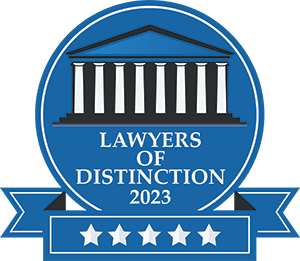The National Highway Traffic Safety Administration (NHTSA) defines distracted driving as any activity that pulls one’s attention away from the task of driving. With that definition, it’s no surprise that distracted driving is a leading cause of car accidents. Eating in the car, putting on makeup, reaching for something in the back seat, or getting into a conversation with your passengers are all distracting behaviors. When people think of distracted driving, though, their mind moves to one object in particular – the cell phone. The proliferation of smartphones and our nation’s addiction to texting and staying connected through social media has vastly increased the odds of getting into a wreck. According to the NHTSA, talking on the phone while driving quadruples the odds of causing an accident, and texting or emailing from behind the wheel increases the likelihood of a crash by 23%. Closer to home, the Georgia Department of Transportation reports a whopping 400% increase in distracted driving accidents between 2006 and 2016, from 5,784 to 25,215 crashes because a driver’s attention was not on the road where it should have been.
Checking your phone when a text or status update comes through is dangerous any time the car is moving, even if you think you are only going to glance at the message for a second. A driver’s responsibility is to be always alert and pay attention to the surrounding traffic. Otherwise, needless tragedies can result. At Durham Law Group, P.C., our Atlanta distracted driving accident attorneys hold distracted drivers responsible for their poor decisions and the consequences of their actions. If you’ve been hurt in a distracted driving car accident in Atlanta, call our office at 404-845-3434 for a free consultation and let us know what happened. We’ll take on the task of recovering significant compensation to help you deal with the costs and harm imposed on you by another driver’s negligence.
Distracted Driving Can Be Visual, Manual, Cognitive or all Three
Distracted driving is classified into three different types of distraction – visual, manual, or cognitive. A visual distraction is one that takes your eyes of the road, such as looking at your phone, your in-dash infotainment display, papers on the passenger seat, or other people in the car. Manual distractions take your hands off the wheel, such as texting or emailing, grooming, eating, reaching for something in the back seat, fixing your tie or adjusting your outfit. A cognitive distraction is something that pulls your mind away from the task of driving, such as reading a text or email, reading a social media update or news story, getting deeply involved in a conversation with passengers, rehearsing a speech for an upcoming meeting, or rehashing an argument you had earlier in the day. As you probably noticed, many behaviors involve more than one type of distraction, making that behavior even more dangerous.
Safe driving is important enough to avoid these common distractions. Plug your destination into your GPS or Maps app before you start driving. If you are expecting an important text, let people know you will be driving and not checking texts for a while. Make sure you are set up to make or take calls hands-free. Anything else can wait. If you know that you will have to do something that would be distracting, find a safe place to pull over and take care of it. The safety of you, your passengers and others on the road is more important.
Georgia Prohibits Handheld Cellphone Use. Period.
Georgia laws ban all handheld cell phone use while driving. This includes holding the phone to talk as well as texting while driving. Violation of the hands-free cellphone law is a primary offense, meaning the police can pull you over if they see you holding the phone; they don’t need another reason to stop you.
Some states ban younger drivers from using a cell phone at all while driving. In Georgia, drivers of all ages and experience can communicate via cell phone while driving, so long as they are communicating hands-free. Georgia drivers under 18 were previously prohibited from any cellphone use while driving, but this law seems to have been repealed in 2018 when the state passed the total handheld ban. According to the NHTSA, drivers aged 16-24 use their phones while driving more than any other age group.
Our Atlanta Distracted Driving Accident Attorneys Can Help if You’ve Been Injured in a Crash
If you do get into an accident that wasn’t your fault, the chances are good that the other driver was distracted at the time. Our experienced Atlanta auto accident attorneys know how to investigate the facts of a car crash and gather the evidence needed to prove the negligent driver’s fault. We also know how to defend you if the insurance company accuses you of causing or contributing to the crash through your own distracted driving. Under Georgia’s comparative negligence law, your own negligence will reduce the amount of compensation you can recover, and if you are found to be 50% or more at fault, then you won’t be allowed to recover any compensation at all. It’s important to be represented by an experienced and successful car accident lawyer who can build and present a solid, persuasive case regarding the cause of the crash and who was at fault. At Durham Law Group, we have been doing precisely that for the benefit of Atlanta auto accident victims for many years.
Contact a Distracted Driving Accident Attorney at Durham Law Group Today
If you have been hurt in a distracted driving car accident in Atlanta, call Durham Law Group for a free consultation at 404-845-3434. We’ll go to work right away helping you get the medical care and compensation you need after getting hurt in a crash caused by another’s negligence.




